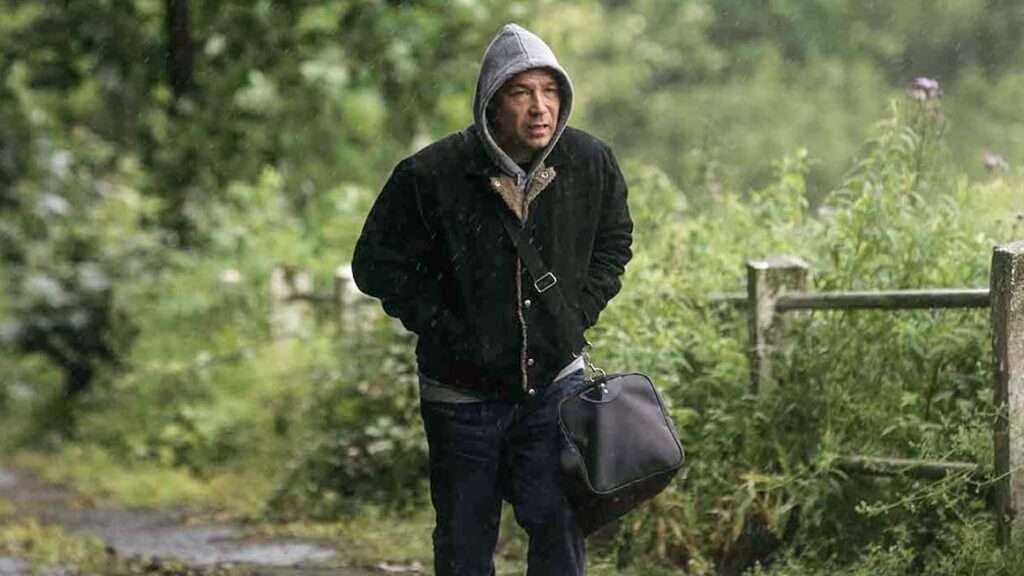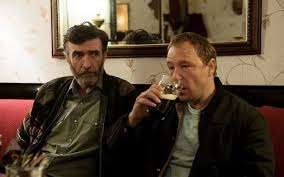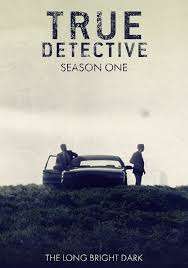Shane Meadows, known for his deeply personal and raw storytelling, delivers one of his most powerful works yet with The Virtues (2019). A four-part drama that delves into the long-term effects of trauma, addiction, and grief, The Virtues is a masterclass in restrained yet deeply affecting storytelling. Led by a career-defining performance from Stephen Graham, the series is a slow-burning, emotionally devastating experience that refuses to offer easy resolutions but instead immerses the audience in the messy, painful, and ultimately human process of healing.
A Story Rooted in Pain and Memory
At its heart, The Virtues follows Joseph (Stephen Graham), a man struggling with the ghosts of his past. At the start of the series, he is a broken man—an alcoholic barely holding himself together after his ex-partner moves to Australia with their son. Faced with the unbearable loneliness of losing the last connection to his former life, Joseph embarks on a journey back to Ireland, where he confronts buried memories of his childhood in a care home.
The narrative unfolds in a slow, deliberate manner, allowing viewers to fully inhabit Joseph’s pain. Meadows, known for his naturalistic approach, does not rely on exposition-heavy dialogue or dramatic flashbacks to reveal Joseph’s past. Instead, trauma is unveiled through Stephen Graham’s haunting performance—through his silences, his body language, and the raw vulnerability that permeates every frame.
Stephen Graham’s Tour-de-Force Performance
Graham has long been one of Britain’s most respected actors, but The Virtues cements him as one of the finest performers of his generation. His portrayal of Joseph is nothing short of extraordinary. There is no theatricality in his pain—only a quiet,

The early episodes are particularly heartbreaking as we watch Joseph succumb to the pull of alcohol. The sheer desperation in his eyes, the physicality of his withdrawal, and the way he teeters between rage and utter hopelessness are devastating to witness. When he arrives in Ireland, Graham brings a sense of childlike vulnerability to Joseph, as though stepping back into his past has stripped him of the armor he has built over the years.
It is in the moments of silence—when Joseph is left alone with his thoughts, his memories creeping in like a slow poison—that Graham’s performance is most affecting. His ability to convey deep, unspoken emotions with the slightest change in expression is unparalleled.
A Cinematic Approach to Television
Meadows and cinematographer Stuart Bentley approach The Virtues with a cinematic eye. The series is shot with an intimate, almost documentary-like realism, with long takes and handheld camerawork that place the audience right in Joseph’s world. There is a starkness to the visuals—muted colors, overcast skies, and dimly lit interiors that reflect Joseph’s inner turmoil.
The use of sound is also deeply effective. The soundtrack, composed by PJ Harvey, is sparse yet haunting, lingering in the background like an echo of Joseph’s past. There are also moments where silence speaks louder than any musical score, allowing the weight of the performances to carry the emotional impact.
Supporting Cast and Their Impact
While Graham is the undeniable heart of the series, the supporting cast is equally impressive. Helen Behan delivers a quietly powerful performance as Anna, Joseph’s long-lost sister. Their reunion is not the emotional catharsis one might expect; instead, it is fraught with awkwardness, pain, and the difficulty of reconnecting after years of separation. Behan’s performance is restrained but deeply moving, capturing the complexities of familial estrangement and the tentative steps toward reconciliation.

Niamh Algar is another standout as Dinah, a woman dealing with her own trauma and suppressed anger. Her interactions with Joseph offer some of the series’ most compelling moments, as both characters navigate their pain in different ways. Algar brings a fiery intensity to Dinah, but there is also a tenderness in her performance that makes her character feel incredibly real.
Themes of Trauma, Guilt, and Forgiveness
The Virtues is not an easy watch. It confronts deeply disturbing themes, including childhood abuse and the long-term psychological scars it leaves. Meadows does not exploit these topics for shock value; rather, he presents them with honesty and sensitivity, allowing the audience to fully grasp the weight of Joseph’s experiences without sensationalizing them.
The series also explores the ways in which trauma can manifest in self-destructive behavior. Joseph’s reliance on alcohol is not just a character trait—it is a symptom of unresolved pain, a means of numbing memories too painful to face. His journey toward confronting his past is not linear, nor is it presented with a neatly tied-up resolution. Instead, The Virtues acknowledges the messy, often non-linear nature of healing.
Forgiveness is another key theme, though Meadows does not offer easy answers. Can Joseph forgive himself? Can he reconcile with a past that has defined him for so long? The series does not provide a definitive resolution, and that is what makes it so authentic.
A Deliberate, Slow-Burning Narrative
Some viewers may find the pacing of The Virtues slow, but this deliberate approach is essential to the story’s emotional impact. The series takes its time immersing the audience in Joseph’s world, making every moment of his journey feel real and unforced. There are no grand revelations or dramatic twists—just a raw, intimate portrayal of a man trying to piece himself back together.

Meadows’ trademark improvisational style adds to the authenticity. Many scenes feel unscripted, with conversations unfolding naturally rather than adhering to tightly structured dialogue. This approach gives The Virtues a deeply personal feel, as though we are watching real people navigate real pain.
A Gut-Wrenching Yet Hopeful Conclusion
The final episode of The Virtues is perhaps its most devastating yet cathartic chapter. Without delving into spoilers, it is a confrontation of the past that is both painful and necessary. The series does not offer a fairy-tale ending—there are no neat resolutions, no grand moments of closure. Instead, it leaves the audience with a sense of quiet resilience.
There is hope, however faint, in the idea that acknowledging one’s pain is the first step toward moving forward. Joseph’s journey does not end with complete healing, but with the understanding that he is not alone—that even in the darkest moments, there is still the possibility of connection, of forgiveness, of something resembling peace.
Final Verdict: A Profound and Devastating Masterpiece
The Virtues is a rare kind of television—unflinching, deeply human, and profoundly moving. It is a series that does not just depict trauma but immerses the audience in the lived experience of it. With a staggering lead performance from Stephen Graham, stunning cinematography, and Shane Meadows’ signature raw storytelling, The Virtues is an unforgettable exploration of pain, redemption, and the complexities of the human spirit.
While it is not an easy watch, it is an essential one. Few series capture the depth of human suffering and resilience with such authenticity. The Virtues is, quite simply, a masterpiece.
Rating: 10/10





